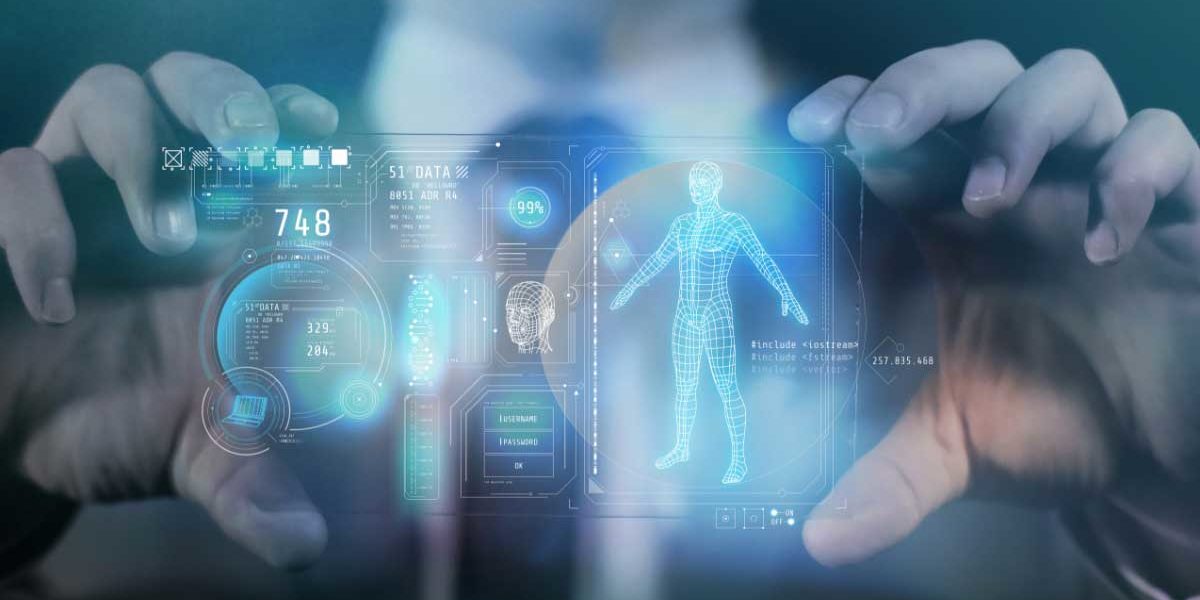One of the world’s highest-growth industries, the AI sector was valued at about $600 million in 2014 and is projected to reach $150 billion by 2026.
Fortunately, sophisticated AI and machine learning solutions can carry the torch of innovation.
In healthcare, the value of machine learning solutions is their capacity for processing massive data sets that are far beyond the scope of human ability. Raw, unstructured data goes in, and clinical insights come out, helping physicians plan and provide better care at a lower cost. While the sky’s the limit as far as the benefits of machine learning, constructing these complex algorithms takes time. In the next five to 10 years, we expect to see medical professionals reaping the dividends of healthcare-based innovation in these areas:
Advanced Image Analysis
Medical professionals are highly trained, and some of their work reflects their tremendous value add. However, there’s still a need for professionals to spend time on repetitive tasks such as image analysis. In radiology, for example, doctors spend time looking at images from CT scans, MRIs, ultrasounds, PET scans, mammography, and more. AI-assisted imaging solutions use the technology’s advanced pattern-recognition capabilities to highlight image features, identify early predictors of cancer, prioritize cases, and cut down on the volume of labor required to perform accurate diagnoses. As AI solutions process more and more data sets, the technology will inevitably eclipse the ability of human doctors to spot the signs of disease as early as possible.
Disease Detection
Due to its high cost, healthcare imaging generally takes place only to confirm a diagnosis. It’s an effective solution, but one that AI solutions promise to upend and replace. By conducting an in-depth analysis of huge amounts of historical data, AI can predict the possibility of sickness or disease at incredibly early stages. For example, by looking at an entire patient population that closely matches the demographic of a specific individual in addition to the medical history of relatives, AI could conclude that a patient is very likely to develop a disorder such as heart disease years before a doctor could ever accurately make a diagnosis.
Drug Discovery

We’ve all seen firsthand how important it is to design and produce effective drugs and vaccines to combat a newly discovered disease. Historically, this process has taken massive investments of time and money, with development timelines extending out to more than a decade in some cases. The ability of AI solutions to cross-reference drugs that are known to be safe and effective and replicate parts of their formulas to suggest new iterations could be groundbreaking, potentially saving countless lives and helping to prevent the next global pandemic.
Digital Consultation
The pandemic undoubtedly spurred innovation in the telehealth space. However, there’s still a long way to go to make virtual visits as effective as a physical visit to the doctor’s office. AI solutions can help close that gap in numerous ways. Machine learning and natural language processing (NLP), for example, will help facilitate symptom collection using just a patient’s voice. Combined with an analysis of the patient’s electronic health record, AI can highlight potential health concerns for doctors to review. By processing information ahead of time, AI increases the volume of patients that doctors can handle, improves the efficacy of virtual visits, and even minimizes the risk of infection from physical interactions as a result.
AI In The Future
AI solutions are now sufficiently sophisticated to automate many of a physician’s tedious, repetitive tasks. It can, for example, reduce the time required to analyze a bacterial swab and recommend a suitable antibiotic prescription. This gives the physician more time and mental energy to perform higher-level functions such as patient education and clinical assessment.
The potential healthcare applications for AI technology are numerous and exciting. Healthcare providers are exploring AI solutions to insurance verification, skin cancer diagnostics, the analysis of lab results, and medical record data analysis. We’re only now beginning to explore the depths of healthcare innovation that continued advancements in AI technology may unlock.
As AI applications become increasingly integrated with medicine, more and more people will gain high-quality, efficient healthcare.



